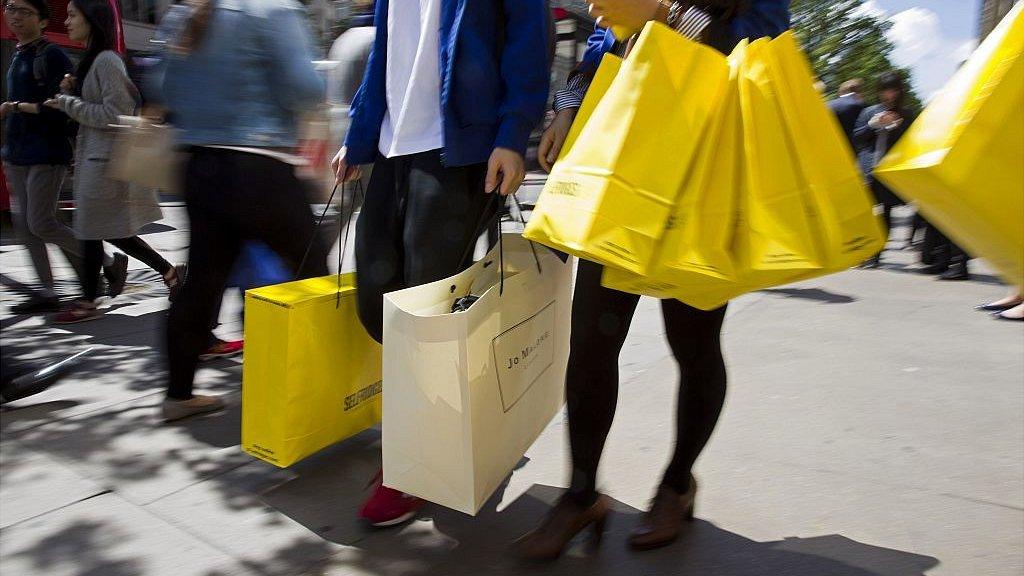Eurozone QE: Swiss face long hangover as ECB injects cash
- Published
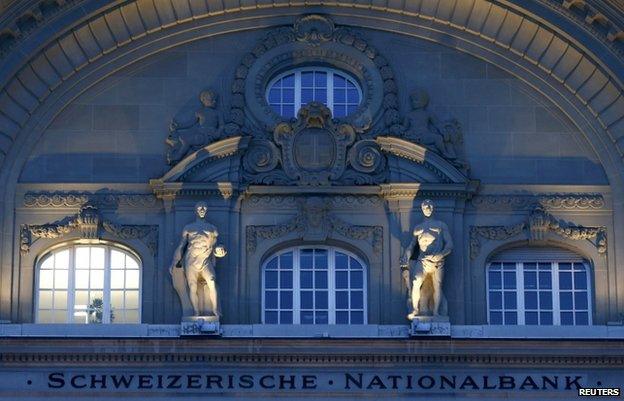
The Swiss National Bank's decision caused shock across Switzerland and the rest of Europe
The decision by the ECB to inject over €1 trillion into Europe's flagging economy was expected in non-EU member Switzerland.
Only a week ago the Swiss National Bank had telegraphed its understanding that something was afoot in euroland when it announced it would abandon its policy of pegging the Swiss franc to the euro, a move which took markets, other central banks, and even Switzerland's own government by surprise.
Days before, senior bank officials said the policy, in place since September 2011 and designed to keep the franc down and thus protect Switzerland's exports, would stay.
So the quiet little press release slipped out last Thursday morning caused shock.
The Swiss decision pushed the euro off a cliff, the franc soared over 20%, and markets around the world went into panic mode.
In Switzerland itself, ordinary people queued to buy euros at knockdown rates, banks ran out of currency, and Swiss railways laid on extra trains for weekend shoppers keen to grab bargains in neighbouring France and Germany.
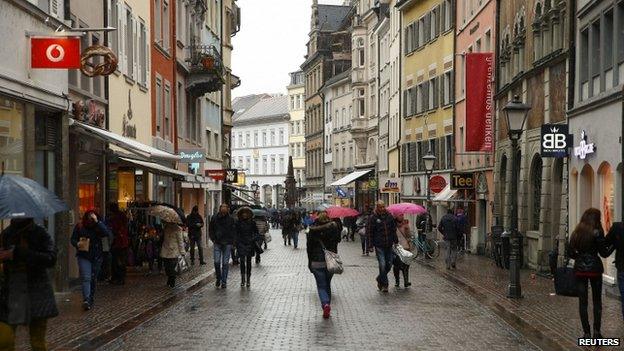
Swiss shoppers headed across the border into Germany to enjoy the fruits of their soaring currency
Export trouble
But that short-term gain is not reflected in the long-term perspective.
While the franc skyrocketed, the Swiss stock market plummeted: shares in every company listed on the Swiss stock exchange lost value.
That is because a weak euro and a strong franc can only be bad for Switzerland.
One in every two Swiss francs is earned in the eurozone, 60% of all Swiss exports are sold in Europe.
Overnight, Swiss products, from watches, to cheese, machine tools, pharmaceuticals and skiing holidays have all become 20% more expensive.
Protecting the economy is the role of the Swiss National Bank, and the need to keep the Swiss franc at a competitive level was the very reason the bank introduced the currency peg in the first place.
So why abandon it so suddenly?
A look at the SNB's spending over the past couple of months provides some answers, and they are worrying.
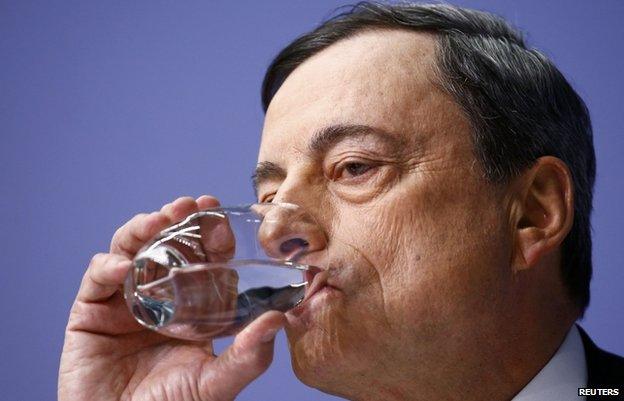
ECB President Mario Draghi's announcement has not inspired confidence in Switzerland
To keep the Swiss franc at 1.20 to the euro, the bank had been buying billions of euros (and printing Swiss francs to do so).
The spend in December alone was 30bn francs. In January it got higher and higher, with a projected monthly outlay of a staggering 100bn francs.
In effect, in keeping the franc low, Switzerland, a country of just 8 million people, seemed to be singlehandedly keeping the euro alive.
Rather than continue, the SNB decided to bail out of a policy it had concluded was unsustainable.
Recession fears
But many Swiss business leaders don't agree. In the days following the abandonment of the currency peg, orders from European companies for Swiss products have been cancelled.
The Swiss government has warned of the de-industrialisation of Switzerland. Employers say they expect to introduce short-time working and even pay cuts.
In short, just about everyone in Switzerland now expects a recession; growth will shrink, and unemployment rise.
The move by the European Central Bank to buy European bonds and thus stimulate eurozone economies has not inspired confidence in Switzerland.
As ECB President Mario Draghi made his announcement, the euro fell against the franc, and so too did the Swiss stock market.
Nobody expects the euro to strengthen anytime soon, but at its current level (99 Swiss centimes will buy a euro today), many Swiss businesses say they face bankruptcy.
So while the initial rise of the franc against the euro may have provided some Swiss consumers with the equivalent of a short but wild party, the after-effects are likely to be a very long, bad hangover for the whole country.
- Published20 January 2015
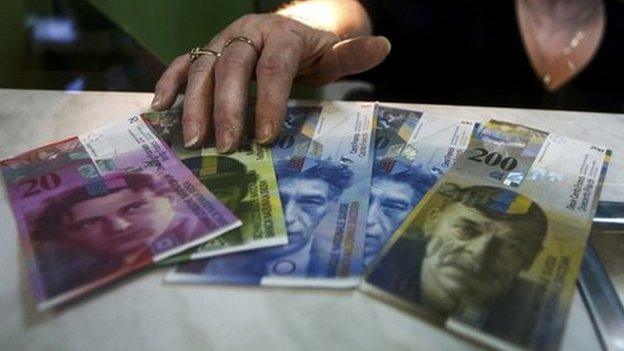
- Published22 January 2015
- Published1 November 2022
